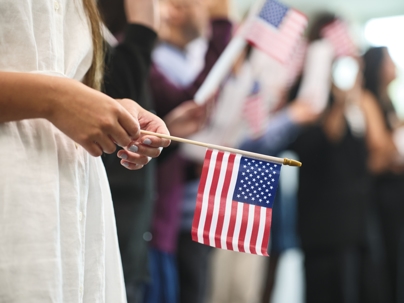The U.S. State Department has officially resumed visa interviews for international students and exchange visitors after a temporary suspension — but with a significant policy shift. All applicants for F, M, and J visas must now ensure their social media profiles are set to public, allowing U.S. consular officers to review online activity as part of the vetting process.
This move introduces a new layer of scrutiny, as visa officers are directed to examine applicants' digital presence for any content that may reflect "hostile attitudes" toward the United States, including its government, citizens, institutions, and cultural values.
What’s Changing?
On June 18, 2025, an internal State Department cable instructed consular posts to begin comprehensive and thorough vetting of all F, M, and J visa applicants' online activity. This includes a wide review of social media accounts, posts, affiliations, and public content, beyond what was previously required.
Applicants are expected to make their social media accounts publicly accessible. According to the State Department memo, refusal to do so could be interpreted as an attempt to “evade or hide certain activity,” potentially affecting the outcome of the application.
What Are Officers Looking For?
Visa officers are instructed to look for signs of:
● Hostility toward U.S. institutions or values
● Endorsement or support for foreign terrorist organizations or politically sensitive movements (e.g., Hamas)
● Anti-American rhetoric or affiliations that may raise security concerns
To conduct these checks, officers may use any available search engines, databases, and online tools to gather publicly accessible information. While the government has not confirmed the use of artificial intelligence, a State Department spokesperson noted that “all available technology”is being used to strengthen the screening process.
Impact on Students and Scholars
The reinstatement of visa interviews is a welcome development for many students and scholars eager to begin their programs in the United States. However, the new vetting rules come with risks that applicants must understand and prepare for.
1. Social Media Profiles Must Be Public
Applicants for F (academic students), M (vocational students), and J (exchange visitors) visas must now ensure that their social media accounts are accessible to U.S. consular officers. This includes visibility into:
● Posts and stories
● Comments, likes, and shares
● Group affiliations
● Past interactions and expressed views
Failure to comply may result in delays or denials.
2. Past Political Activity May Be Scrutinized
Consular officers will be evaluating online content for political speech or affiliations perceived as “hostile.” This introduces subjective interpretation, where even nonviolent, lawful political opinions—such as criticism of U.S. foreign policy or support for certain international causes—could flag concern.
3. Delays and Denials Could Increase
Due to the expanded background check process, visa processing times may increase, particularly for applicants with extensive digital histories. Administrative processing may be triggered by posts deemed controversial, even if they occurred years ago.
Students and scholars are strongly encouraged to:
● Review their public profiles
● Remove or archive content that could be misinterpreted
● Be prepared to discuss their online presence during interviews
4. Applicants from Certain Schools May Be Deprioritized
According to reports, consular officers have been instructed to prioritize applicants attending U.S. schools where international students make up less than 15% of total enrollment. This could put applicants bound for top-tier institutions—such as Harvard, MIT, or the University of Illinois—at a disadvantage due to their high international student populations.
5. J Visa Scholars Also Affected
The policy applies equally to exchange visitors, including professors, researchers, and postdoctoral scholars. This could impact academic collaborations, research appointments, and sponsored exchange programs, especially in politically sensitive fields or when applicants are from countries under heightened U.S. scrutiny.
What Applicants Should Do
Given these changes, students and scholars applying for F, M, or J visas should:
● Apply early to allow for potential processing delays
● Audit and clean up their social media profiles
● Avoid posting or sharing content that could be misinterpreted
● Be honest and consistent with information shared across platforms and in their application
● Understand that once listed, social media handles are considered part of the formal application
Final Thoughts
The resumption of student and scholar visa processing offers a path forward for thousands of international applicants. However, the new social media vetting policy signals a broader shift toward digital transparency in U.S. immigration procedures. Now more than ever, it’s essential for applicants to understand how their online presence can influence their immigration journey.
For personalized guidance and a pre-interview checklist tailored to your visa type, feel free to contact our team.

